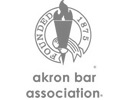NEWS
NEED ASSISTANCE?
If you would like to talk to one of our attorneys, please call 330.535.1555.
NEWS
Industrial Commission Hearings
If your case has been scheduled for a hearing with the Industrial Commission (“IC”), you will receive a Notice in the mail detailing your hearing information and if your attendance is required. Due to the Covid-19 pandemic, these hearings have transitioned from in-person hearings to the majority being done virtually through WebEx or the telephone. Virtual hearings have provided a more convenient and efficient manner for injured workers to attend hearings and for now, it looks like they are here to stay. Prior to any hearing, your attorney at Dean Wagner Co. LPA will contact you to discuss specifics such as your testimony and to answer any questions you may have. The option for in-person hearings remains, and before your hearing you and your attorney at Dean Wagner Co., LPA will make a decision on the best way to attend.
Most hearings are scheduled for 20 minutes time slots, although depending on type and complexity of the issues this may vary. There may be multiple hearings scheduled for the same time as yours so your hearing may not be called first, so patience is key. Many hearings can be much shorter, but it is best to block off an entire hour of your schedule. For example, if your hearing is scheduled for 2:00pm, you should block off that entire hour from 2:00-3:00pm.
At this time, we are having most clients attend hearings by calling in from their telephone. Again, this will be decided and discussed by you and your attorney at Dean R. Wagner Co., LPA prior to your scheduled hearing. The Notice you received in the mail will contain the telephone number that you will need to call. We recommend calling in approximately five (5) minutes before your scheduled hearing time in case you experience any complications. Once you call in, you will be prompted to enter a meeting ID, also located on your Hearing Notice. You will be then placed into a virtual lobby (i.e. on hold) until your hearing is called. Remember, patience is key at this time as there may be a delay before your hearing begins. A Hearing Officer will preside over the hearing and render a decision, similar to a judge. The specifics of the actual hearing will vary depending on type of hearing being conducted and will be discussed in detail with you and your attorney at Dean R. Wagner Co., LPA in advance. You will likely not know the outcome of your hearing immediately. It is customary for the hearing officer to take the matter under advisement meaning you will receive an Order outlining the decision in approximately 7-10 days.
Work Injury Statistics
Approximately 2.9 million non-fatal work injuries and illnesses were reported in 2015 which occurred at a rate of 3.0 injuries per 100 workers. Over half of the 2.9 million injuries reported in 2015 involved days away from work, job transfer, or restrictions.
In Ohio in 2016, nearly 90,000 claims were recognized by the Ohio Bureau of Workers' Compensation. Of those 90,000 claims, 183 injuries resulted in death and over 10,000 claims resulted in more than one week of work being missed.
Missed work and restricted hours can lead to lost income and financial hardship for the worker and his or her family. This is in addition to the physical pain and limitation due to the work place injury. The workers' compensation system is designed to provide insurance to the injured worker to protect them in case of an injury. However, as anyone who has ever suffered a work injury can attest to, the system is full of pitfalls which can prevent someone from getting the treatment he or she needs.
Ohio Defends Workers' Compensation Procedure
Shannon Ferguson, a worker injured in Ohio while working for Ford Motor Co., has claimed that Ohio Revised Code 4123.512(D) violates the Equal Protection Clause. Ohio Revised Code 4123.512(D), treats Ohio injured workers who become plaintiffs in a court action arising from a workers' compensation claim differently than all other plaintiffs in the Ohio court system.
In non workers' compensation cases, the plaintiff is always the person who starts the lawsuit against the defendant. However, in workers' compensation claims, the employer has the ability to file a notice of appeal if they disagree with a decision made by the Ohio Industrial Commission. Once this is filed, the injured worker is required by law to file a lawsuit against the employer. A law passed in 2006, R.C. 4123.512(D), forbids an injured worker from filing a 41(a) dismissal of an employer's appeal. In all other civil lawsuits, the plaintiff has the ability to file a one time dismissal without getting approval of the opposing party. The only requirement is that the plaintiff re-file the case within 1 year of the date of the dismissal. This is a strategy that is used by the majority of plaintiffs to allow more time to: prepare for trial; make sure the true extent of the damages are known; and (3) gather the money for what can be a costly trial.
The Eighth District Court of Appeals in Cuyahoga County agreed with Ms. Ferguson. The Court concluded that the statute violates the Equal Protection Clause of the Ohio Constitution by treating plaintiffs who are injured workers differently that all other plaintiffs. The Court stated:
"The injured worker has the status of a plaintiff like any other plaintiff in a civil case. However, plaintiffs in civil cases, except a successful claimant-injured employee in a workers’ compensation case, have the privilege to utilize a voluntary dismissal, without the consent of the defendant under Civ.R. 41(A)(1)(a). {¶28} We fail to see how the state has a valid governmental interest in this statutory classification."
By invalidating the amendment to 4123.512, the court is granting Ohio injured workers' the same rights as other Ohio plaintiffs. This is a victory for Ohio injured workers in that they can no longer be forced to trial by the employer if they do not feel that are ready, or if there are other reasons why postponing the trial may be beneficial.
Recently, the Ohio Supreme Court heard arguments on the State of Ohio's appeal of the Eighth District's decision. The State of Ohio is arguing against injured workers being able to voluntarily dismiss stating that employers must give consent for employees to be able to dismiss because it will allow the employee to prolong their workers' compensation benefits. To date, no decision has been made by the Supreme Court on the validity or constitutionality of the amendment.





